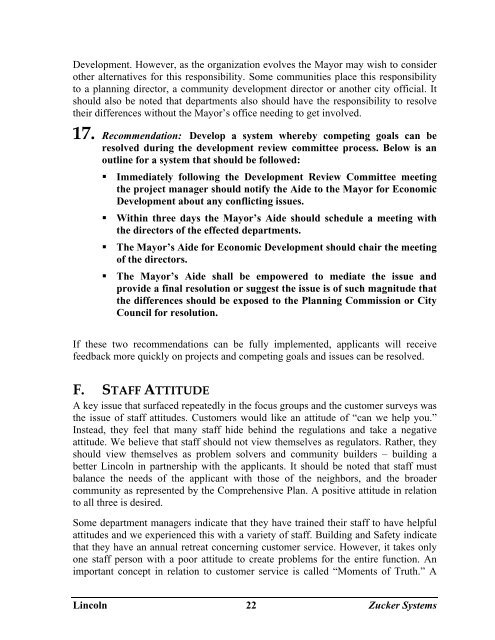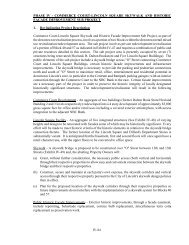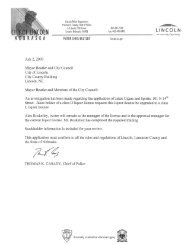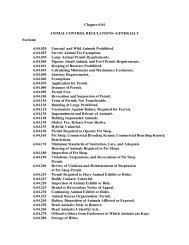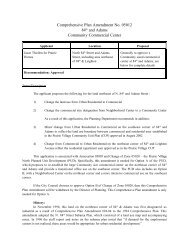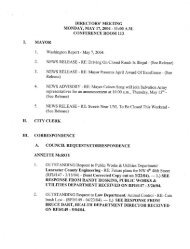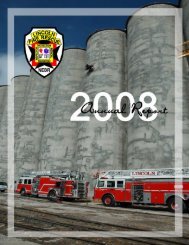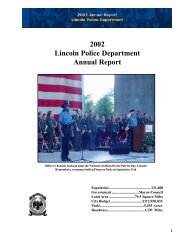Development and Permitting Process Improvement Study
Development and Permitting Process Improvement Study
Development and Permitting Process Improvement Study
Create successful ePaper yourself
Turn your PDF publications into a flip-book with our unique Google optimized e-Paper software.
<strong>Development</strong>. However, as the organization evolves the Mayor may wish to consider<br />
other alternatives for this responsibility. Some communities place this responsibility<br />
to a planning director, a community development director or another city official. It<br />
should also be noted that departments also should have the responsibility to resolve<br />
their differences without the Mayor’s office needing to get involved.<br />
17. Recommendation: Develop a system whereby competing goals can be<br />
resolved during the development review committee process. Below is an<br />
outline for a system that should be followed:<br />
Immediately following the <strong>Development</strong> Review Committee meeting<br />
the project manager should notify the Aide to the Mayor for Economic<br />
<strong>Development</strong> about any conflicting issues.<br />
Within three days the Mayor’s Aide should schedule a meeting with<br />
the directors of the effected departments.<br />
The Mayor’s Aide for Economic <strong>Development</strong> should chair the meeting<br />
of the directors.<br />
The Mayor’s Aide shall be empowered to mediate the issue <strong>and</strong><br />
provide a final resolution or suggest the issue is of such magnitude that<br />
the differences should be exposed to the Planning Commission or City<br />
Council for resolution.<br />
If these two recommendations can be fully implemented, applicants will receive<br />
feedback more quickly on projects <strong>and</strong> competing goals <strong>and</strong> issues can be resolved.<br />
F. STAFF ATTITUDE<br />
A key issue that surfaced repeatedly in the focus groups <strong>and</strong> the customer surveys was<br />
the issue of staff attitudes. Customers would like an attitude of “can we help you.”<br />
Instead, they feel that many staff hide behind the regulations <strong>and</strong> take a negative<br />
attitude. We believe that staff should not view themselves as regulators. Rather, they<br />
should view themselves as problem solvers <strong>and</strong> community builders – building a<br />
better Lincoln in partnership with the applicants. It should be noted that staff must<br />
balance the needs of the applicant with those of the neighbors, <strong>and</strong> the broader<br />
community as represented by the Comprehensive Plan. A positive attitude in relation<br />
to all three is desired.<br />
Some department managers indicate that they have trained their staff to have helpful<br />
attitudes <strong>and</strong> we experienced this with a variety of staff. Building <strong>and</strong> Safety indicate<br />
that they have an annual retreat concerning customer service. However, it takes only<br />
one staff person with a poor attitude to create problems for the entire function. An<br />
important concept in relation to customer service is called “Moments of Truth.” A<br />
Lincoln 22 Zucker Systems


